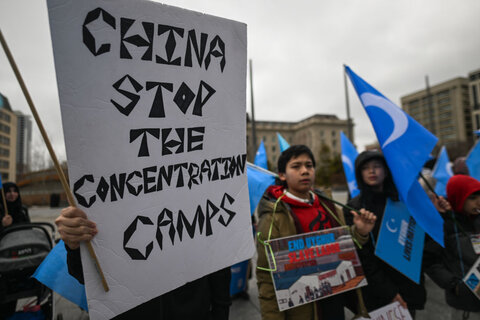
Roger Pilon
Last week I had a short letter in the Wall Street Journal commenting on an op-ed by Journal editorial board member Collin Levy about China’s repression of religious liberty. (Years ago, by the way, when she was a rising senior at Vassar, Ms. Levy was my summer intern.) Because the Journal is behind a paywall, I reprint the letter here, then add a few comments that could not be included in a short letter.
Sept. 17, 2024
In her richly informative “China Expands Its Religious Repression” (Houses of Worship, Sept. 13), Collin Levy cites “37 academics, lawyers, journalists and others who signed a letter calling on the international community to insist that China live up to its human-rights commitments.” Unfortunately, China is doing just that.
As with all communist constitutions, China’s basic law lists rights we in the West take for granted. But at the end of that list is a general defeasance clause: “Citizens of the People’s Republic of China, in exercising their freedoms and rights, may not infringe upon the interests of the state, of society, or of the collective.” And who determines that? Why, the Chinese Communist Party, China’s real government.
Fidel Castro put it succinctly: “Within the revolution, everything. Against the revolution, nothing.” China’s religious repression is “lawful.”
Roger Pilon
Senior fellow, Cato Institute
The misreading of the Chinese Constitution shown in the letter Ms. Levy cites is not uncommon. In fact, during the Soviet era, when I served in the Reagan administration as the director of policy for the State Department’s Bureau of Human Rights and Humanitarian Affairs, I found that even our diplomats would sometimes lament that “if only the Soviets would respect the rights contained in their Constitution.” Unfortunately, they do, if you read the document carefully.
Doing so, you will also see that communist constitutions are fundamentally different from the understanding of constitutions that Americans once had. I brought those difference out in some detail in my chapter in a 1998 Cato book China in the New Millennium, edited by Jim Dorn. Thus, far from a document designed to secure the liberties of the people, the Chinese Constitution makes it clear from the start that the PRC “is a socialist state under the people’s democratic leadership,” that “the socialist system is the basic system” of the PRC, and that “disruption of the socialist state by any organization or individual is prohibited” (Article 1).
The document was written, therefore, with a specific agenda in mind—“building socialism”—which gives it less the feel of a constitution than of articles of incorporation for, say, “China, Inc.,” a body constituted for a specific, yet all-encompassing end. Given that character, a second feature looms especially large. For if the nation is organized along vast programmatic lines, one wants to know how it is that citizens join or consent to so far-reaching a program. The short answer is that they don’t.
This is top-down rule by the Chinese Communist Party. It should hardly surprise that the Constitution elevates the interests of the state above the rights of the citizen. After all, the whole point of the Constitution is to order affairs—including the affairs of individual citizens—toward the goal of building socialism.
Not surprisingly, several of those who commented on my Journal letter noted that our own system is moving in exactly that direction—and it is. After Franklin Roosevelt’s New Deal constitutional revolution, followed by Lyndon Johnson’s Great Society of the ’60s, to say nothing of the agendas of the Obama and Biden administrations, Americans are increasingly being drafted, through their taxes and the regulations that restrict their liberties, into building the world envisioned by their governors. At the end of that road is “America, Inc.,” and it isn’t as if we haven’t been warned as we see the state of religious and other liberties in countries like China.







